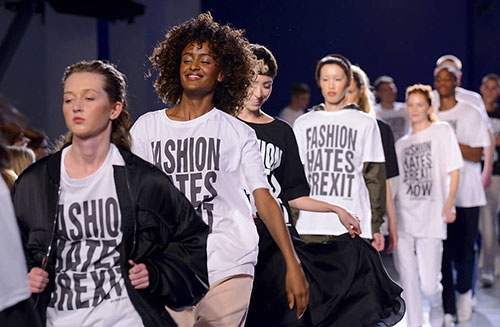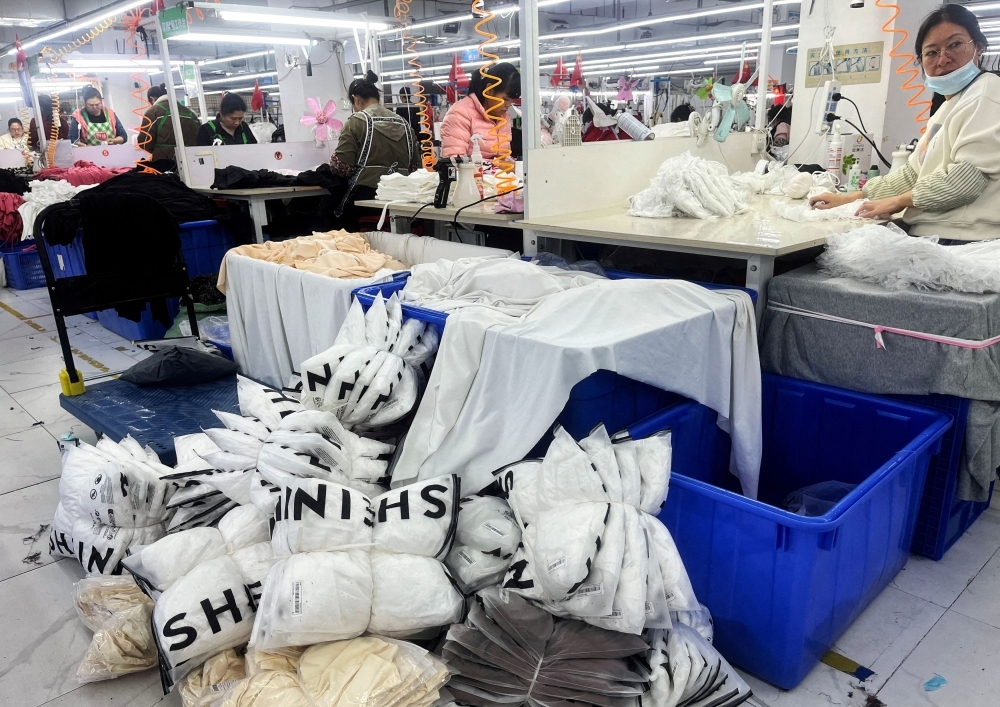"UK Trade Policy Observatory foresees, Brexit to impact the manufacturing sector which would lead to a significant drop in exports. However, continental manufacturers and retailers fear that UK operating outside the regulatory sphere of EU will be at an unfair advantage. Britian want to finalise this trade deal within a year as it will end the transition period for UK when it aligns with single market rules."
 UK Trade Policy Observatory foresees, Brexit to impact the manufacturing sector which would lead to a significant drop in exports. However, continental manufacturers and retailers fear that UK operating outside the regulatory sphere of EU will be at an unfair advantage. Britian want to finalise this trade deal within a year as it will end the transition period for UK when it aligns with single market rules. However, fashion firms consider this time frame unrealistic as it may lead to negotiators overlooking some detailed protections they want, or even miss some opportunities of a post-Brexit world.
UK Trade Policy Observatory foresees, Brexit to impact the manufacturing sector which would lead to a significant drop in exports. However, continental manufacturers and retailers fear that UK operating outside the regulatory sphere of EU will be at an unfair advantage. Britian want to finalise this trade deal within a year as it will end the transition period for UK when it aligns with single market rules. However, fashion firms consider this time frame unrealistic as it may lead to negotiators overlooking some detailed protections they want, or even miss some opportunities of a post-Brexit world.
Focus on tariff-free market
The UK Fashion and Textile Association says, the deal needs to focus on creating a tariff-free market as British manufacturers rely heavily on exports to the EU. The British government should promote zero-tariff, zero-quota trade. The EU negotiators on the other hand are likely to agree to this only if Britain aligns with the bloc on issues like state aid, environmental rights and taxes.
Also, even if a free trade agreement covering these issues is reached, there are bound to be some disruptions post-Brexit as authorities will have to face increased border checks and other holdups caused by increased border regulation. Exporters will also have to fill in declaration forms, which add to the administrative costs — UK mid-market retailer Next estimated a cost of £150,000 per year under a no-deal scenario. This is likely to be a bigger problem for small exporters, since major retailers like Next that export more than £250,000 per year into the EU, already have to declare all the goods moved out of the UK.
post-Brexit as authorities will have to face increased border checks and other holdups caused by increased border regulation. Exporters will also have to fill in declaration forms, which add to the administrative costs — UK mid-market retailer Next estimated a cost of £150,000 per year under a no-deal scenario. This is likely to be a bigger problem for small exporters, since major retailers like Next that export more than £250,000 per year into the EU, already have to declare all the goods moved out of the UK.
Making laws more flexible
Another area of concern is the difference in regulation and standards of both as all goods manufactured in the UK and sold in the EU will need to comply with the regulatory standards of the latter — and vice versa. However, UK may ensure that all EU standards are properly matched.
An even more challenging question is to prove “rules-of-origin” for the clothing sector whose supply chain stretches across multiple countries. Adam Mansell, CEO, UK Fashion and Textile Association has been lobbying with the British government for more flexibility on rules. One possible change could be stipulating single transformation, which would mean just one production process, such as tailoring material into a suit, would be needed. Fashion firms such as H&M, which sources significantly from non-EU countries, are enthusiastic about the potential for a more liberal approach.
New migration system could lead to skill shortage
The British government has also pledged to introduce a new migration system according to which, British subjects will also lose their right to work and live in the EU freely. This has led to fears of a skills shortage if the government imposes a new points-based immigration system as soon as the transition period ends. Both Fashion Roundtable and the UKFT have expressed willingness to work with the government on upskilling domestic workforce but there are concerns about the readiness of the industry to adapt to changes in the short-term.
Mansell called for clarity on freedom of movement of goods-not-for-sale like samples. If the UK mirrors the rules of other third-party countries, these will now likely be subject to the ATA Carnet or “passport for goods” system. This also presents another challenge for London Fashion Week and the British Fashion Council. If models, creatives and extra garments cannot be sourced at short notice, then it becomes a less favorable environment for luxury brands to be a part of.












